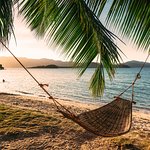- Mkunazini Street, Stone Town, Urban/West Region, Zanzibar - Tanzania
Tanzania Health Care and Vaccinations
- Home
- Tanzania Health Care and Vaccinations
Health Information for Travelers to Tanzania!
| TITLE | SPECIAL PRECAUTIONS |
|---|---|
| Yellow Fever | Yes |
| Typhoid | Yes |
| Tetanus | Yes |
| Rabies | Sometimes |
| Malaria | Yes |
| Hepatitis A | Yes |
| Diphtheria | Yes |
Note:
If a vaccination against yellow fever is required while in Tanzania, this costs $50 USD for foreigners and 30,000 Tsh for Tanzanian residents and citizens of the East Africa Community and vaccination certificate is required from all travellers over one year of age.
Remember that proof of this vaccine is only required if you arrive from a country designated as being at risk of yellow fever, or during your journey, you have a layover longer than 12 hours in a country with a known yellow fever risk. If either of these apply to you, but for any reason you are not able to take the yellow fever vaccine then you will need to contact your doctor to provide you with an official letter which explains why you are not able to have this vaccine. You will be required to show this letter to the authorities on arrival at the arrival airport or at the Tanzanian border.
Health Care
Before leaving home, visit the doctor or a travel clinic for advice on vaccinations, malaria prophylactics and general advice. Basic traveller vaccinations recommended include yellow fever, tetanus, typhoid and hepatitis A. It is vital to take out comprehensive travel medical insurance, and it is essential that is should include repatriation to your home country in the event of an emergency. There are a wide variety of policies to choose from, so shop around. If you are going to be active in Tanzania (mountain climbing or scuba-diving for example), ensure the policy has adequate provision.
There are some good private hospitals in Dar es Salaam, Arusha and Stone Town on Zanzibar, but facilities are rudimentary outside of these and medicines are often unavailable. All treatment must be paid for in advance. Tanzania’s emergency telephone number (ambulance, fire and police) is 111. The best private hospital in the country is the Aga Khan Hospital, Ocean Road, Dar es Salaam, (tel: (022) 211 5151; www.agakhanhospitals.org). However, for cases of extreme emergencies or surgery, visitors with adequate health insurance will be transferred to a private hospital in Nairobi, Kenya which has the best medical facilities in East Africa.
Malaria: The risk of contracting malaria is prevalent throughout Tanzania and prophylactics should be taken (take expert advice before you leave home). Symptoms can start as something resembling a severe attack of flu. If you develop any symptoms even after several weeks after your return home, seek medical advice. Travellers should take precautions against mosquito bites – cover-up at dusk and use insect repellent. Almost all hotels in Tanzania have air-conditioning and/or fans which help ward off mosquitoes and most tourist-class hotels have mosquito nets over the beds.
Diarrhea: A visit abroad puts you at an increased risk of getting diarrhea, there is no point in denying it. Easy Travel advises you to include appropriate medicines to combat this in your first-aid kit.
Tsetse Flies: the tsetse fly can be found throughout Tanzania’s Northern Circuit, the most popular part of Tanzania for visitors. Certain areas are particularly popular with the tsetse (as well as with visitors. These are the forested parts of Serengeti National Park, Tarangire National Park and Lake Manyara National Park. Potentially, a tsetse fly bite is extremely dangerous. Its bite can result in symptoms such as an unpleasant fever, fatigue, swelling to the lymphnodes, headache, fatigue and aching joints and muscles. A severe rash on the skin is also a possibility. Tsetse flies can also carry a very dangerous parasite which can cause something called “human African trypanosomiasis” (or “sleeping sickness.” Sadly, this can often be fatal without the correct treatment.
While there is no way of completely protecting yourself against the tsetse fly, there are nevertheless several things you can do to try and avoid being bitten by the tsetse fly and other annoying insects while in Tanzania. Your choice of clothing is important: choose long-sleeved shirts to cover your arms and long trousers (pants) to protect your legs. Even the colour of what you wear can play a part, as dark and bright colours are favoured by the tsetse fly. Instead, go for beige, olive-coloured or white clothes to minimize the risk of getting bitten. And although no insect repellent is guaranteed to be 100% effective, we at Easy Travel recommend visitors to bring repellent with them and use it. Keeping out of bushes and other wooded areas is another useful tip.
Altitude sickness: This can strike from about 3,000m (9,800ft) and is caused by lack of oxygen and should be a consideration for anyone climbing Mt Kilimanjaro. Symptoms include heart pounding, shortness of breath and dizziness. The best way of preventing it is a relatively slow ascent – some time spent walking at medium altitude, getting fit and acclimatizing is helpful. To decrease the symptoms, an immediate descent is necessary.
Food and Drink
You may see locals drinking tap water while in Tanzania, but we do not recommend that visitors copy them. Bottled water is freely available and The Mountain Tours & Safari recommends all visitors to drink only this and any water designated as ‘Safe’ by your hotel or lodge.
Locals are fully adapted to Tanzanian tap water, but its different composition -containing minerals which may not be present in the water of your home country – means you should avoid drinking it. Visitors drinking Tanzanian tap water may fall ill and while this is usually limited to a bad stomach, it can confine you to your accommodation and spoil a few days of your Tanzanian vacation.
Don’t let this prevent you from drinking water when in Tanzania! We at The Mountain Tours & Safari recommend that you drink at least two litres of water while you’re here. Keeping well-hydrated in the Tanzanian climate is absolutely crucial.
Other food hygiene precautions should be strictly observed if eating in a local restaurant, but visitors should encounter few problems if eating in upmarket restaurants and hotels. Eating snacks from street stalls (common in Tanzania) is not advised, but if items are fresh and cooked well (and the same could be said about buffets in tourist hotels) then you shouldn’t encounter any problems. If you get traveller’s diarrhoea, which doesn’t usually last more than 48 hours, the key treatment is rehydration. If it is more persistent, then seek medical advice.
Other Risks
Rabies is prevalent in Tanzania (in monkeys as well as domestic animals). There is a high incidence of HIV/AIDS. Avoid swimming and paddling in fresh water as there is a risk of bilharzia (prevalent in both lakes Victoria and Tanganyika); swimming pools that are well chlorinated and maintained are safe. On the coast and islands, there are sea urchins so take care when snorkelling and diving – if possible wear plastic shoes. If diving, ensure you are fit to do so. Be aware that serious diving injuries may require time in a decompression chamber and the nearest one is in Kenya – check that your medical insurance covers this eventuality.
What Our Clients Say
An enim nullam tempor gravida donec enim congue magna at pretium purus
Great Tour Operator and Great Local Guide!
Very efficient tour operator. I booked the 8 days Zanzibar tour and everything was perfect. Since the beginning they were very efficient. They answer to all your questions within one day and they send all the information you need before departure. The tour was well organized, intensive because we only had 8 days but it really covered the most important places. My guide Ahmed was amazing, he explained a lot of things about the history and the culture of Zanzibar. he was always available for us and he helped to organize all the excursions during the free time. Definitely recommend them for a great time in Zanzibar.

Josh Hutcherson
Granville Island, Vancouver, Canada
The Best Way To See Zanzibar
We were on an 11-day tour of the Northern and Central/Urban part of Zanzibar with a group of 16. We could not have been happier. We were split into two groups each with a guide, Ali and Mohammed. But we were often together giving us two guides. They were wonderful, so knowledgeable, helpful and caring. They could not do enough for us. They were so open and honest about their lives we gained insights into Zanzibar we could never have had without them. They were also hilariously funny. We loved all our stops but would have liked to have spent another night in Kendwa. We would highly recommend the trip.

Lorraine Morisson
Buckinghamshire, London, United Kingdom
Immersive Holiday Experience
After years of wanting to go to Tanzania, I landed in Zanzibar and in the good company of Mohamed. My booking with Khamis was efficient and she was super pragmatic about how I should go about the trip. Being a solo traveller can be expensive and I appreciated that Khamis and Mohamed were aware of this and provided me with options that didn’t burn a hole in my pocket. There was a genuine interest in curating my days to what I wanted and as a result not only did I drink some yummy coffee, eat mangoes off a tree on a highway but also watch the strange art of selling homes in an open market.

Diantha Kalos
Duivendrecht, Amsterdam, Netherlands
Perfect For My Group!
Everything was outstanding. The tour system they have set up met my needs and exceeded them. Considering that I have been on all of the tours before, I will say that they are just different than the other tour companies. Ahmed was young, very intelligent and loved sharing his knowledge and the history of his beloved country. He is very interactive with his clients and that makes it so much easier for his clients to understand what he is saying and made it easier for them to remember what he says. Thank you for making my trip go so smoothly! I will be using The Mountain Tours and Safari again!

Ricardo Hurtado
Toronto, Ontario, Canada
Perfect Vacation in Zanzibar
I can just describe this company with one word: PERFECT. Since the moment I decided to plan my vacation to Zanzibar I contacted Khamis via email and she gave me all the recommendations and planned my days. Khamis was responsable and always responded my questions in a timely manner. During my days in Zanzibar we had the most amazing time thanks to our tour guide, Ibrahim. He was always on time, he answered all our questions and explained everything with details. They exceeded all my expectations and we were very pleased. I will definitely recommend this company to anyone traveling to Zanzibar.

Harry Etheridge
Rybne, Kyiv, Ukraine

Do you have some Questions?
We’ve been working long enough to know what are some of your common questions before, during & after your Zanzibar trip. Have a look at some of the answers.
FAQ
Got a Question?
Here a brief overview of the most frequently asked questions on Zanzibar vacations. More detailed information on each subject can be found HERE.
To have a captivating and exceptional experience on Zanzibar Excursion/Holiday, tourists should schedule to stay a minimum of seven days. Meanwhile, you can decide to spend more days to have a fantastic and satisfying Zanzibar holiday/Excursion.
Notably, the citizens of the United States (US) and the United Kingdom need tourist visas. Likewise, European, Canadian, and Australian travelers will likewise require tourist visas for Tanzania.
Meanwhile, the tourist visas are obtainable on getting to Tanzania, although, the American, as well as British governments, urge travelers to apply prior to traveling. The single-entry tourist visa cost is $50 for British citizens (while it cost $40 for applying ahead of time) and the single-entry tourist visa cost is $100 USD for US residents. Moreover, tourists can obtain a cost is $100 for Multiple-entry visas for $100 USD. Ensure your visa is VALID for 6 months before the time to take off. However, tourist visas are needed by South African residents to visit Zanzibar Islands.
NOTE: The costs and visa requirements are be changed anytime, do make effort to visit the Tanzania Immigration website for more details.
Zanzibar is a semi-autonomous piece of the Assembled Republic of Tanzania. Accordingly, you don’t have to get independent visas for the territory Tanzania and Zanzibar Islands.
No, nutritious foods are available at an affordable price during your Zanzibar excursion. Base on your financial plan, you can spend as low as $5 every day on meals. While another individual can decide to order food that costs is $15. However, bottled water and drinks are accessible at affordable prices.
Indeed, Zanzibar is a phenomenal beach holiday destination. It is additionally an incredible worth for-cash destination that is loaded with character, rich history, and unforgettable experience. Ultimately, Zanzibar culture is vivid and intriguing. Admittedly, the old architecture is precious as well as the seashores are beautiful.
Individuals frequently ask us if Zanzibar holidays excursion/Trips are costly. The basic answer is NO. You can visit Zanzibar on a tight spending plan that suits you.
The worldwide flights to Tanzania are probably going to be the single greatest cost of a trip to the Zanzibar Islands. The most ideal approach to get a save money on your Zanzibar Island holiday is thus to watch out for flight specials to Tanzania and even flight arrangements directly to Zanzibar.
From Dar es Salaam on the terrain of Tanzania, you would then be able to take the reasonable ship or fly to Stone Town on Zanzibar’s fundamental island, Unguja.
On a strict financial plan, you can spend as low as $50 to $55 USD every day on a Zanzibar holiday/Trip. That is a quote dependent on basic, nitty-gritty convenience in lodgings and essential beach huts, and dinners at local cafés and food slow down.
Certainly YES. Zanzibar Islands is safe for tourists to travel for Excursions/Trips or holidays. Zanzibar is one of the safest African destinations. Indeed, the Zanzibar Archipelago is essential to consider for experience in Tanzania, which is quite possibly the most steady African nations. Tanzania is positioned as the most tranquil country in East Africa, indeed.
The local individuals are for the most part inviting and excited when they get to see tourists. On account of the truly flawless beaches, bright climate and rich culture Zanzibar is a well-known tourist destination. Thus, it includes all the fundamental tourism foundation for an agreeable and safe holiday. Numerous worldwide travelers make the most of their experience on the islands such a lot that they return consistently.
About Us
A legally Tour Operator Company incorporated in Zanzibar and operating in the entire Tanzania. We speak the language, understand the culture and know every inch of the land. With Our Team, you’ll get the most authentic experience. We introduce you to unexploited beaches and game spotting areas, the greatest parks, local bonfires. You’ll immerse yourself in the african life, get up close and personal with the culture, the locals, and the wilderness. You might get so comfortable you won’t ever want to leave!
Social Media
Office Hours
08:00 AM – 06:30 PM
Monday – Sunday
Get In Touch
- © 2023 Juma Zanzibar Tours and Safari | All Right Reserved | Designed By uKnow Web Technologies Limited





